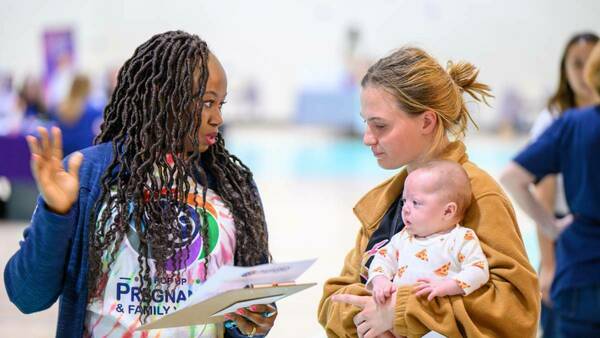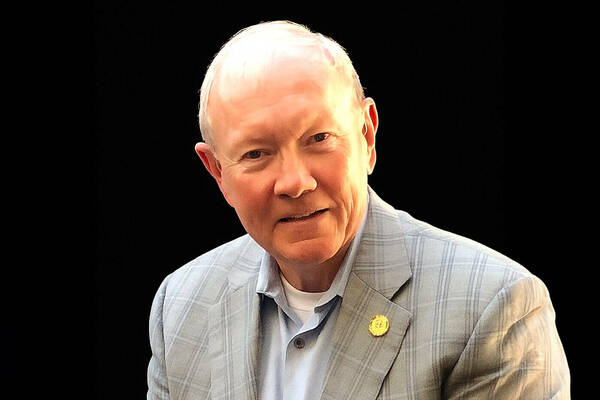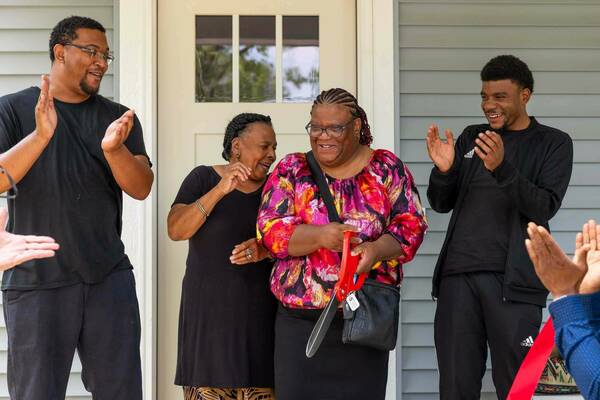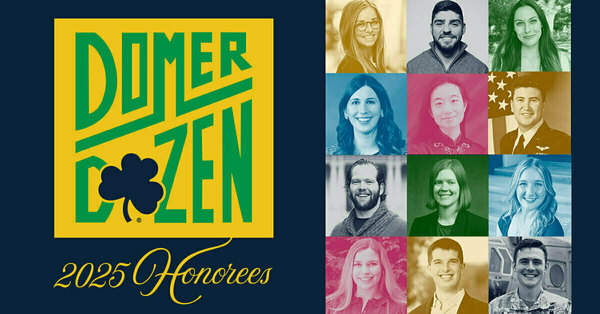Political scientist explores extending constitutional duties to private actors

Do we have a constitutional duty to protect one another’s rights?
What if each of us, as private citizens, were responsible for upholding the constitutional rights of our fellow citizens? For example, what if a landlord had a constitutional duty to provide safe and ample housing for his or her tenant, or a privately owned social media platform was expected to protect the freedom of speech of its users?
For Christina Bambrick, the Filip Family Assistant Professor of Political Science in the Department of Political Science at the University of Notre Dame, this is something she has pondered and studied for years. “I have always been interested in big questions about the legitimacy of government authority as well as limits on authority,” said Bambrick, who specializes in constitutional theory.
In new research, Bambrick explores the difference between our conventional understanding of rights protections in the U.S. Constitution — which directs responsibility vertically, obligating the government to protect citizens’ rights — versus a more horizontal approach, which extends that duty to private actors to protect each other’s rights. She examines constitutional politics across the globe to explore these different approaches to balancing rights and responsibilities in a democratic society.
Legal scholars and practitioners in the United States have generally understood the Constitution as obligating only the state or federal government with protecting constitutional rights, favoring a strict separation between the public and private sphere.
But now, Bambrick said, courts and constitution-makers are opening up the possibility that private actors — such as individuals, businesses, hospitals and private schools — have certain constitutional duties to one another. Her research delves into the theoretical potential of applying constitutional duties horizontally and explores the way in which we view the relationship between the public and private realms of society.
Bambrick’s book, “Constitutionalizing the Private Sphere” (Cambridge University Press, November 2024), examines the differing approaches of constitutional orders across the globe and how they often depart from traditional understandings of the government’s lone role in upholding constitutional rights.
In addition to the United States, Bambrick studied a range of democracies, including India, Germany and South Africa, that have adopted this horizontal approach in different areas of governance.
“A judge or lawyer in the United States, for example, is unlikely to argue that a constitutional right creates a duty for a private actor,” Bambrick said.
From a global perspective, however, that understanding has shifted, according to Bambrick. She said courts in other countries increasingly view their constitutions as establishing potential obligations for private actors as well. In her research, Bambrick looked to constitutional debates, court cases, interviews and political histories to examine these horizontal duties.
“One way in which I do see these kinds of arguments permeating U.S. political discourse is when we talk about social media companies, who are private actors,” Bambrick said. “We often want to apply values like freedom of speech to these private companies, where we expect them to respect and protect an individual’s right to say what they want.”
But this points to a different way of thinking about rights, Bambrick explained.
“It’s as if we are now saying: ‘You have your rights as a private actor, as a citizen or even a big corporation, but you may have certain duties as well,’” Bambrick said. “Maybe you actually have some part to play in realizing others’ rights. The emphasis isn’t just on one’s own freedoms, but maybe you have to do something to allow others to exercise their freedoms, too.”
Bambrick said this conversation is not new. Historically, the debate about the separation of public and private spheres goes back to the time of the Civil War Amendments and, later, the Civil Rights Act of 1964. Questions that arose in those eras are relevant to these current discussions, Bambrick noted, and can inform and illuminate our contemporary debates.
“You do see in the American context episodes where there was some real wrestling with these questions, but they were typically shelved because Congress and the courts were hesitant to entertain the idea of constitutional duties for private actors,” Bambrick said.
She added that many experts see these types of horizontal interpretations as too heavily empowering the courts, which are often thought to be less democratic as institutions. “But others view this idea as a way for the Constitution to speak to the whole country more directly,” Bambrick said.
Bambrick agreed that the legal and political culture in the U.S. places a great emphasis on individualism and individual rights, as well as the sanctity of a robust private sphere where citizens enjoy wide personal freedom.
“The idea of horizontal rights does not mean there is no separation between the public and private spheres anymore. However, it does reinterpret what it means for the Constitution to be the supreme law of the land. To realize the will of the people more completely, this understanding suggests the Constitution should have influence across spheres,” she said.
But for such an idea to succeed and overcome common objections, she said, it would help to involve sectors and branches of government beyond the courts. “If we were ever going to regulate private spaces in this way in the U.S., it could help to have more connection to institutions like legislatures that are thought to have more democratic accountability,” Bambrick said.
The intent behind these nontraditional ideas speaks to a deeper, broader question about what we owe each other as fellow citizens. Bambrick said it begins with asking ourselves more generally, “What are our duties to each other, and how do we know what those duties are? Second, how do we take those duties seriously — within our relationships and our communities — and even within our own country?”
Contact: Tracy DeStazio, associate director of media relations, 574-631-9958 or tdestazi@nd.edu
Latest ND NewsWire
- Researchers deconstruct chikungunya outbreaks to improve prediction and vaccine developmentThe symptoms come on quickly — acute fever, followed by debilitating joint pain that can last for months. Though rarely fatal, the chikungunya virus, a mosquito-borne illness, can be particularly severe for high-risk individuals, including newborns and older adults. While the virus is common…
- Eck Institute investigator to strengthen postpartum care for Indiana mothersYenupini Joyce Adams, associate professor of the practice and maternal health lead for the Eck Institute for Global Health at the University of Notre Dame, is partnering with Beacon Health System to pilot a new, first-of-its-kind postpartum care model in the South Bend-Elkhart community.
- Gen. Martin Dempsey to speak at Notre Dame Forum event on ‘Hope, Global Stability and the Role of the United States’Gen. Martin Dempsey, the retired 18th chairman of the Joint Chiefs of Staff, will join University President Rev. Robert A. Dowd, C.S.C., for a fireside chat at 4 p.m. Friday (Oct. 10), as part of the 2025-26 Notre Dame Forum. The discussion, titled “Hope, Global Stability and the Role of the United States,” is part of the exploration of this year’s Notre Dame Forum theme, “Cultivating Hope.” It will take place in Rooms 215/216 of McKenna Hall and will also be livestreamed. The event is free and open to the public.
- University of Notre Dame joins the Global Coalition of Ukrainian StudiesThe University of Notre Dame has joined the Global Coalition of Ukrainian Studies after signing a memorandum of cooperation, formalized Sept. 24, at the Ukrainian Institute of America in New York City. Notre Dame joined four other American institutions that were also publicly welcomed to the coalition at this event: Arizona State University, Columbia University, Manor College and the Shevchenko Scientific Society.
- One year later, Inauguration Build a ‘dream come true’ for Habitat familiesOne year later, work on Inauguration Build 2024 is complete, offering shelter and so much more to five local families.
- Alumni Association and YoungND honor 2025 Domer DozenThe Notre Dame Alumni Association announced its 2025 Domer Dozen cohort, honoring 12 graduates ages 32 and younger for excellence in their contributions in learning, service, faith and work — the core pillars of the association’s mission.













